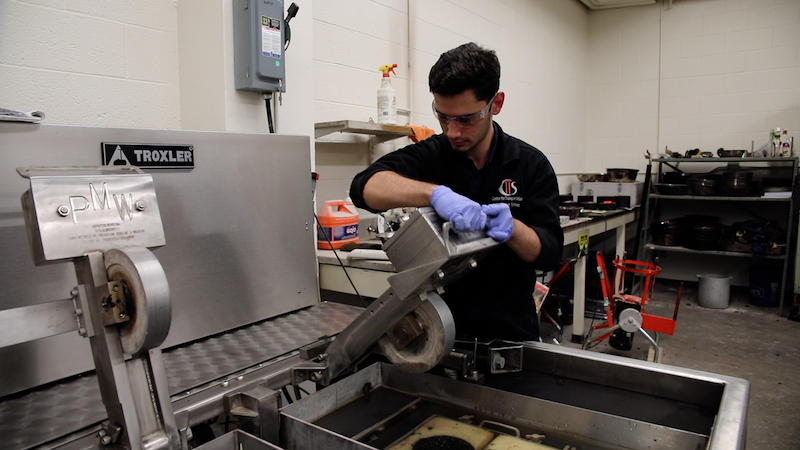
UTEP Partnership to Advance Electric Transportation and Sustainability on a Global Scale
Last Updated on August 04, 2020 at 12:00 AM
Originally published August 04, 2020
By UC Staff
UTEP Communications
The University of Texas at El Paso is partnering with Utah State University (USU) on an innovative collaboration involving a consortium of universities working to transform the automotive, transportation and electrical grid industries on an international scale.

The National Science Foundation (NSF) awarded its most coveted Engineering Research Center (ERC) grant to a consortium led by Utah State University, to develop an international research center dedicated to advancing sustainable, electrified transportation. The ASPIRE (Advancing Sustainability through Powered Infrastructure for Roadway Electrification) ERC, a five-year, $26 million grant that is renewable to a 10-year, $50.6 million award, will be headquartered at USU and operated through strategic partnerships with UTEP, Purdue University, the University of Colorado Boulder and the University of Auckland in New Zealand.
“UTEP is proud to be one of four core universities leading initiatives to advance sustainable transportation as part of the National Science Foundation’s flagship Engineering Research Center program,” UTEP President Heather Wilson said. “This partnership allows UTEP students and faculty to engage in meaningful research to transform transportation and related industries.”
The ASPIRE ERC is poised to catalyze sweeping transformations throughout the transportation and electric utility industries. The collective efforts of the consortium will achieve meaningful and lasting impacts on society to include sustainable and equitable job growth, improved air quality, reduced cost of moving people and goods, and growth in renewable domestic energy production.
The center will focus on developing new infrastructure that facilitates widespread adoption of electric vehicles and will develop charging solutions that provide power to all classes of vehicles, both while parked and in-motion. ASPIRE will bring transformations in the automotive, transportation, and electrical grid industries in ways that will serve the entire United States. It is expected to raise more than $200 million during the next decade in government and industry support.
“We are so proud to be part of the formation of such a prestigious Engineering Research Center that not only focuses on technical aspects but also addresses the socioeconomic issues related to equity and environmental justice,” said Soheil Nazarian, Ph.D., director of UTEP’s Center for Transportation Infrastructure Systems (CTIS). “This center will allow UTEP students to engage with their peers at four other institutions, in cutting-edge research that will positively impact the transportation, power and environmental aspects of our lives and our economy.”
UTEP will lead the transportation infrastructure aspects of the project as well as co-lead in power, innovation, diversity and workforce development. Students, faculty and staff from the College of Engineering will be at the forefront of the collaboration, along with affiliated UTEP faculty and staff members from diverse programs throughout the University that will play leadership roles in the operation and management of ASPIRE.
“I am elated that UTEP students, faculty and staff are involved in this ERC. This is a great opportunity,” said Patricia Nava, Ph.D., interim dean of UTEP’s College of Engineering. “ASPIRE researchers are developing holistic solutions that eliminate range and charging as obstacles to the broader electrification of all vehicles, including passenger cars and long-haul, heavy-duty trucks. This is impactful work, and I am very pleased that UTEP is leading important facets of this research.”
The center launches at a critical moment in U.S. history. Nationwide, transportation and electric utility infrastructure are in need of extensive renovation. At the same time, vehicle emissions have serious impacts on public health and the environment, and fluctuating oil prices affect household budgets and economic stability. Electric vehicles, becoming more accessible over time, play an important role in transforming the future of transportation, yet challenges remain to achieve sustainable and widespread adoption. Key to this new model of electric vehicle use is the development of charging technology that is built into roadways and parking facilities.
“UTEP, as an R1 top tier research institution, plays a central role within ASPIRE as we develop the smart pavements and modern grids of the future and inform our nation’s major investments in these critical infrastructure elements,” said Regan Zane, Ph.D., principal investigator and director of ASPIRE at USU. “It is my great honor to partner with the UTEP team and lean on their leadership and proven success in valuing and empowering students.”
